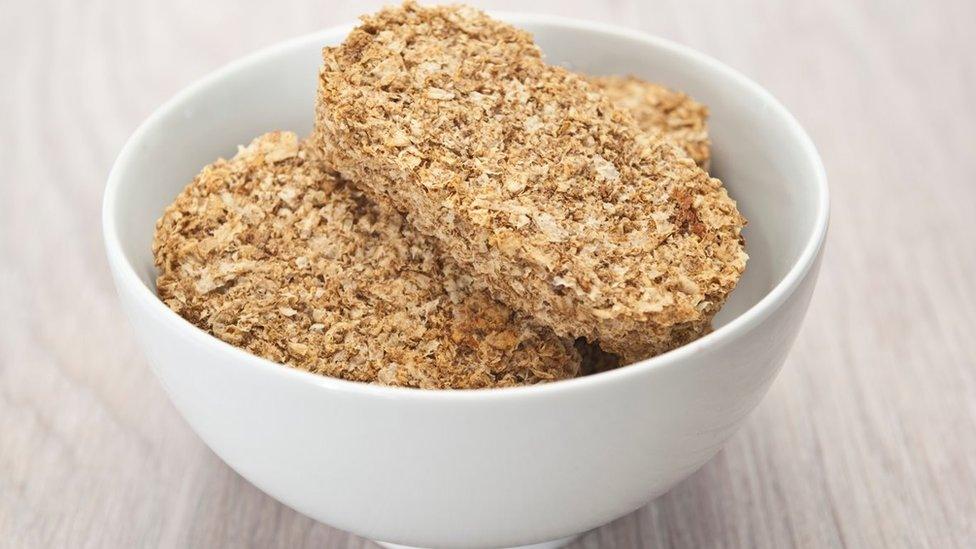Coeliac patient died days after being fed Weetabix, inquest hears
- Published

Healthcare assistants fed the patient Weetabix as they unaware she had coeliac disease
A patient with coeliac disease died days after being fed Weetabix in hospital, an inquest has heard.
Hazel Pearson of Connah's Quay, Flintshire was being treated at Wrexham Maelor hospital.
The 80-year-old died on 30 November from aspiration pneumonia four days after the meal.
The coroner said the hospital's action plan to prevent this happening again lacked detail and had "narrow vision".
Coeliac disease is a condition where your immune system, external attacks tissues in the body when you eat gluten.
Gluten is a type of protein found in wheat, rye and barley - when it is eaten, it can cause a range of symptoms, such as bloating and constipation.
The inquest at Ruthin heard that, although Mrs Pearson's coeliac disease was noted on her admission documents, there was no sign over her bed indicating the condition - which meant healthcare assistants were unaware of her dietary needs.
She had been admitted for pleural effusion, or water on the lungs - but became ill within hours of eating her breakfast and vomited.
It was later found that material from the stomach had been inhaled into her lungs, causing an infection.
The inquest heard she had also become ill two weeks earlier when she was given a meal containing gluten during a stay at Deeside community hospital.
Consultant geriatrician, Joel Abbott told the inquest it was difficult to pin point one cause of her vomiting, which could also have been due to infection, or a kidney injury, which Mrs Pearson also had.
He said that though it causes bloating and diarrhoea, coeliac disease doesn't usually cause vomiting.
'Amateurish'
Wrexham Maelor matron Jackie Evans told the inquest some changes had taken place since Mrs Pearson's death, such as signs being placed above the beds of patients with dietary requirements.
However, Assistant coroner Kate Sutherland said she was concerned there hadn't been a formal investigation.
"The action plan lacks detail. What has happened locally is commendable, but it lacks detail and it has narrow vision."
She said what had been put in place was "amateurish with no strategic vision".

The patient's coeliac disease had been raised on admission but she was still served a wheat-based meal
Ms Sutherland said Betsi Cadwaladr University Health Board (BCUHB) needed to provide a witness who could answer further questions about changes across the health board before she could make a decision on a prevention of future deaths report.
The health board has been given 14 days to update the coroner as to whether there have been other incidents and to provide more information regarding Deeside Hospital.
A new date for the hearing is yet to be fixed.